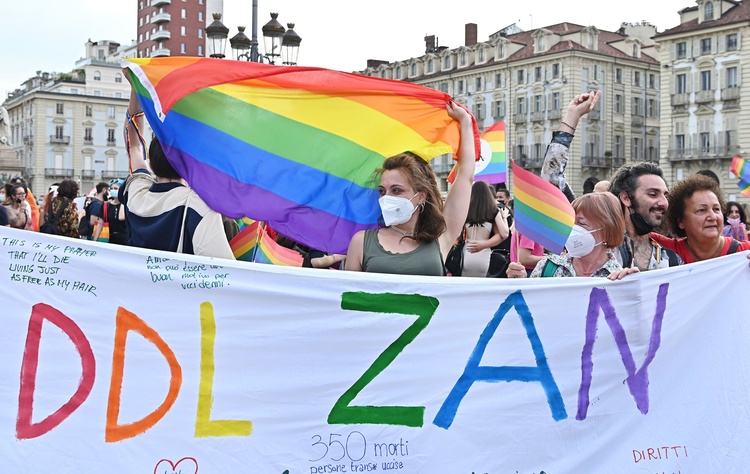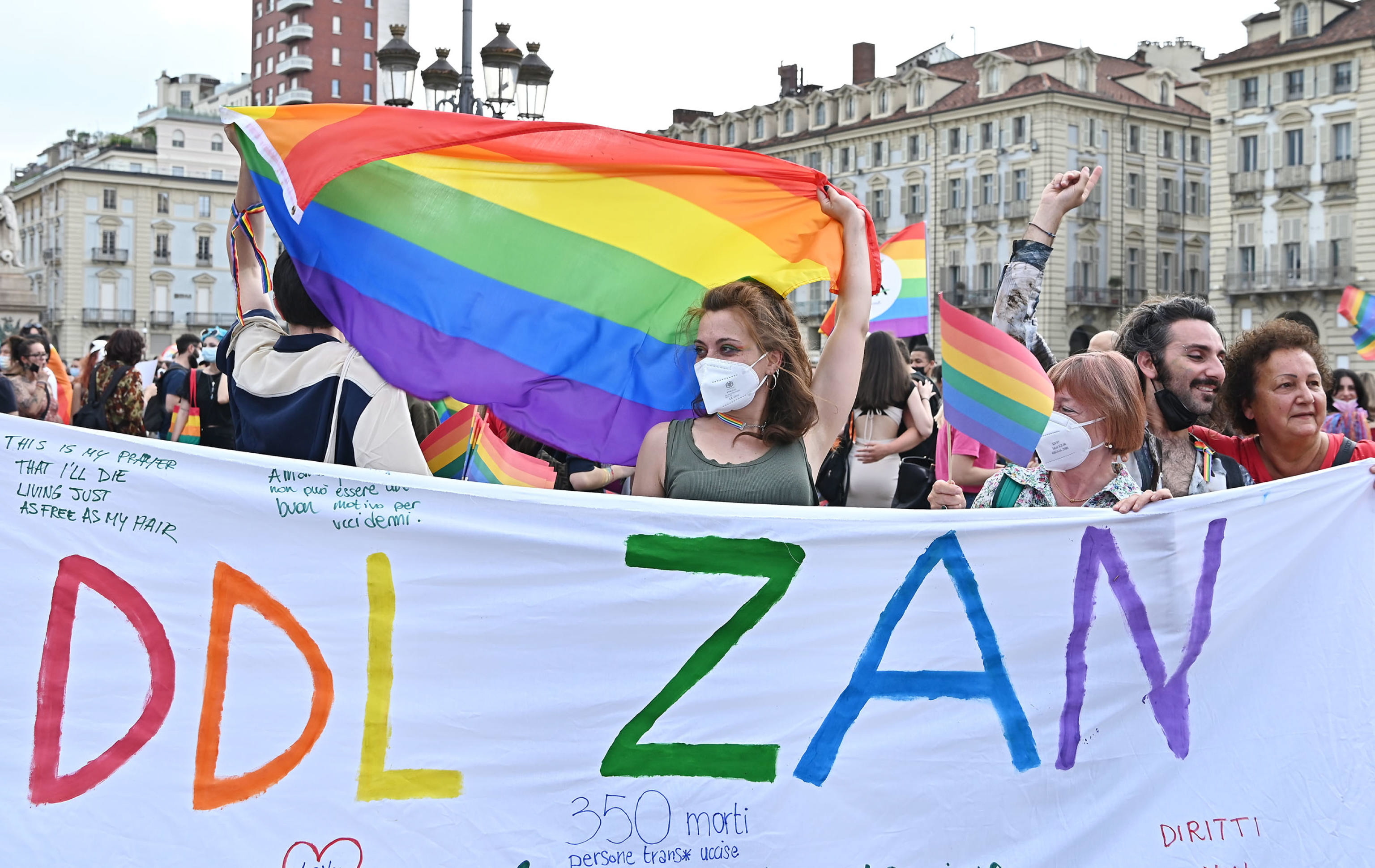Draghi was addressing the Italian senate in light of the Vatican’s opposition to the controversial bill, which it fears could curb the religious freedom of the Catholic Church.
The so-called “Zan law” – named after democrat politician and LGBTQ activist Alessandro Zan – seeks to punish acts of discrimination and incitement to violence against gay, lesbian and transgender people.
With the backing of several other left-wing MPs a number of additional proposals were wrapped into the same package, including the creation of a national day against homophobia and the collection of statistics measuring discrimination and violence against LGBTQ+ people in Italy.
The terms were also expanded to target discrimination against women and people with disabilities.
The bill was approved by the lower house of parliament in November but needs final approval from the senate.
The bill, which modifies an existing law punishing racist violence, hatred and discrimination, would see people convicted of such crimes facing up to four years in jail.
On June 17, the Vatican lodged a diplomatic protest against the draft law – delivered to the Italian embassy to the Holy See by Pope Francis’ de facto foreign minister, Archbishop Paul Richard Gallagher – in what the media has labelled “interference” in Italy’s affairs.
However, the Vatican’s intervention this week prompted the prime minister to reassert the separation of church and state in Italy.
“Ours is a secular state, not a religious state,” Draghi, a practising Catholic, told the senate in response to the Holy See’s protest.
“So parliament is free to debate… and to legislate.”
The prime minister also underlined that Italy’s legal system is designed to respect international commitments, a reference to the 1929 Lateran Treaty which established the Vatican City as a sovereign state and regulates relations between Italy and the Catholic Church.
In its letter, the Vatican argued that the draft law could violate the historic accord.
Italian daily Corriere della Sera reports that the Church has objected to Catholic schools not being exempted from a proposed national day against homophobia, transphobia and biphobia, to be held on May 17.
Matteo Salvini, head of the right-wing League party which aligns itself with the Church’s stance, said: “I thank the Vatican for its good sense.”
In recent months the bill has faced sustained opposition from rightist parties, conservative groups and the Italian Catholic Church, with the League describing it as “divisive and ideological” and arguing it could hamper freedom of expression.
However Zan denies the bill would impinge on free speech, stressing that it would “criminalise hate” against LGBT people and disabled people as well as punishing misogyny.
Several other EU countries already have legislation in place to criminalise homophobic hate crimes, but previous attempts to introduce such laws in Italy have failed.












